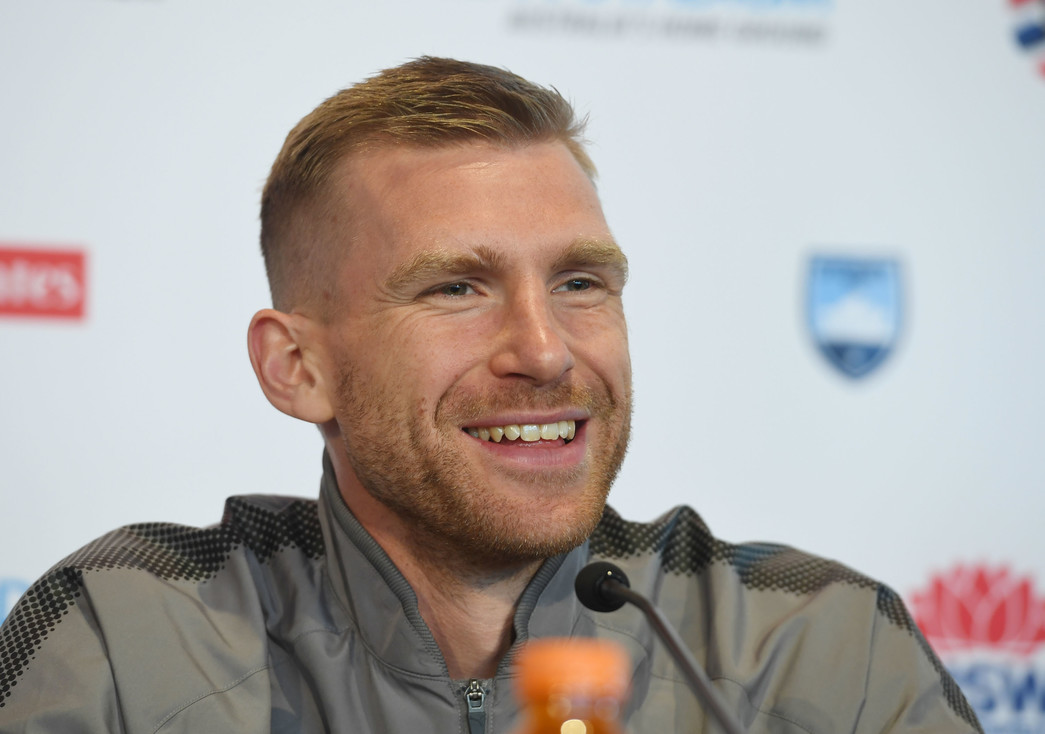Per Mertesacker has been introducing himself to the kids at Hale End and setting up meetings as he uses his spare time to get ready for life in his new role, so what sort of manager is he going to be?
Latest
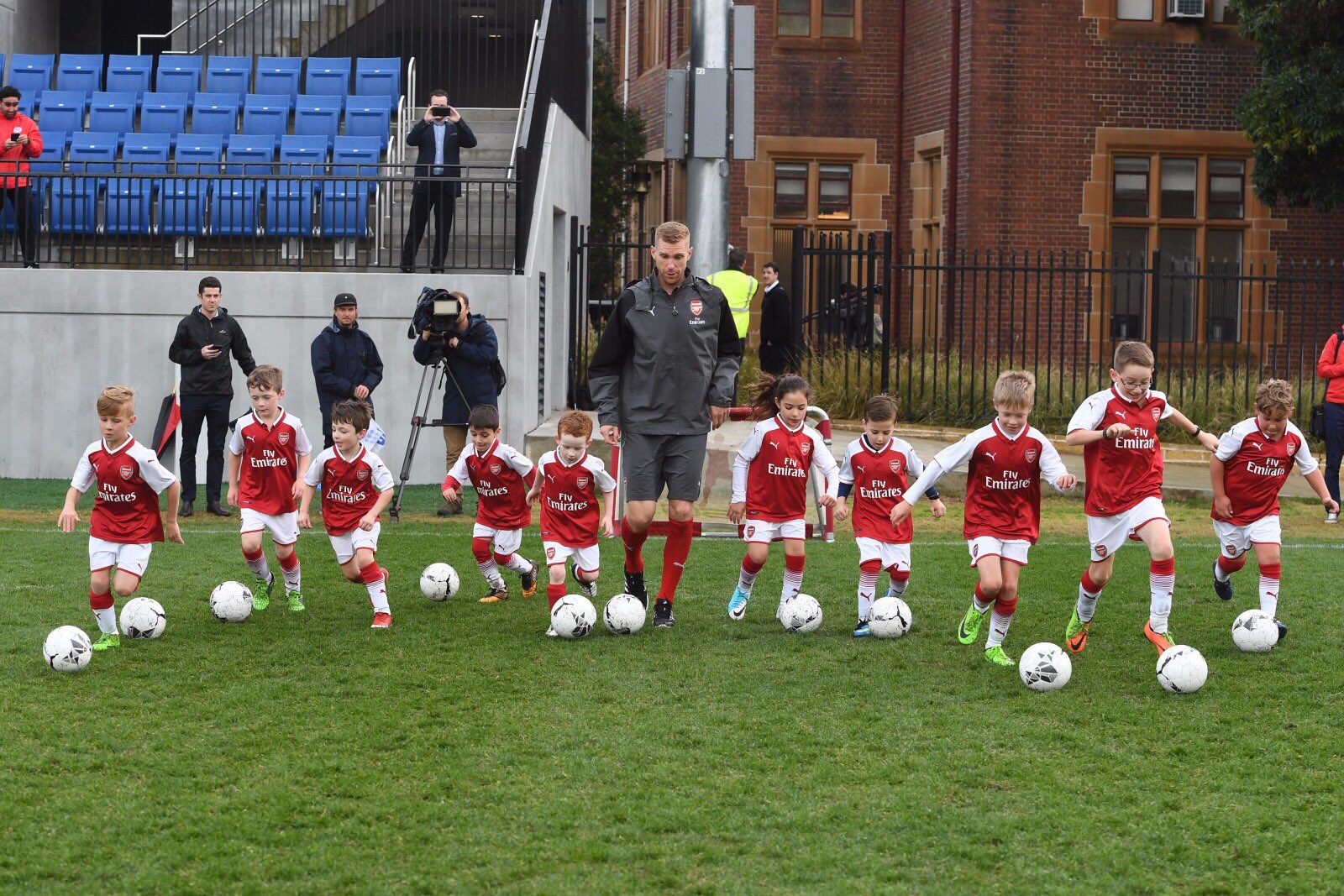
The BFG has already begin to ease himself into life as the new head of Arsenal’s Academy despite technically still being a player and not in the role until the end of the season.
Despite only being 33, Mertesacker will retire from playing when this season ends and will take over the Academy role that has been filled only temporarily since Andries Jonker left to manager Wolfsburg at the start of 2017.
Luke Hobbs has been in charge in the interim.
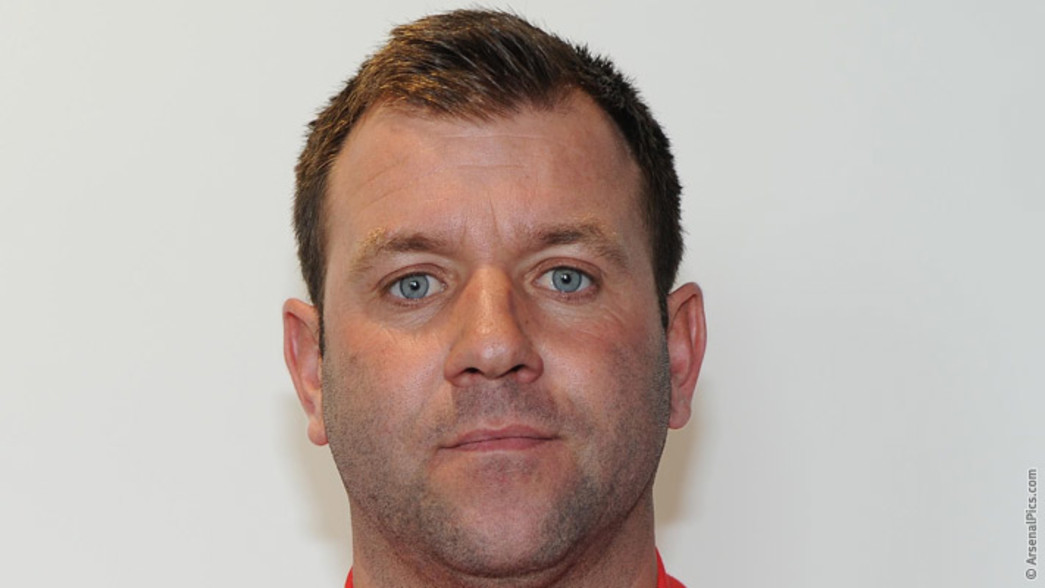
Seen as the ideal candidate to bridge the gap between the academy and the first team, Mertesacker has been spending much of his free time at Hale End, meeting players and setting up planning meetings with coaches.
But what sort of manager will Per Mertesacker make? We took a look at what his career to date tells us and what others have said about him to compile a comprehensive overview of what Per will bring to the role.
Next: Per Mertesacker’s management style
Per Mertesacker’s potential management style
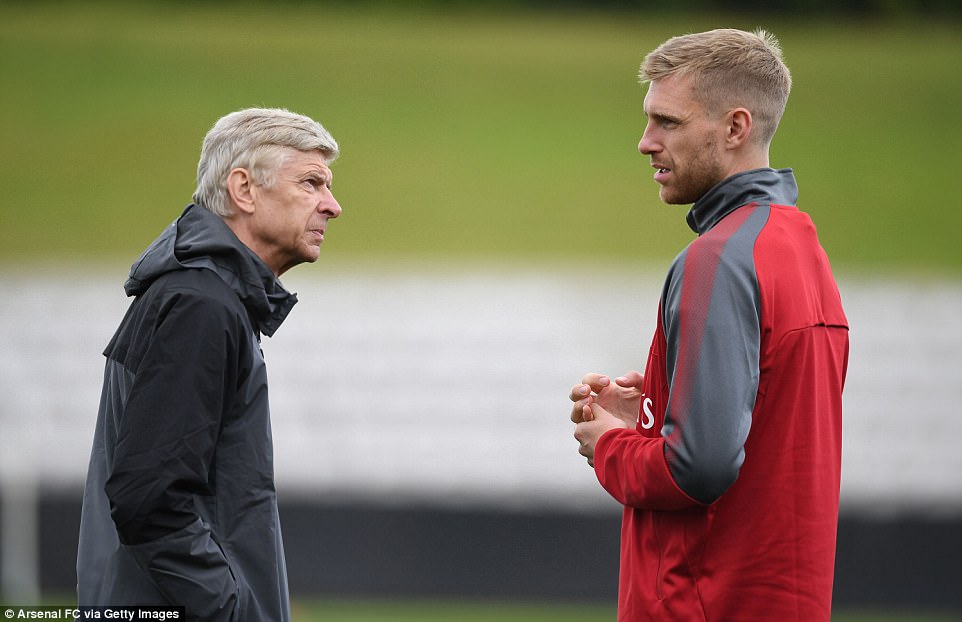
In July, it was announced that Per Mertesacker would be taking over Arsenal’s academy once his playing contract with the club ran out in June 2018.
Since the news emerged, the centre-back has given us a sneak-peak of how he wants to lead the young Gunners and revealed a deep, caring philosophy that I’m not sure many fans realised he had.
No one saw the appointment coming but after hearing what he has to say and how he wants to make a difference, many strongly believe that the BFG could go on to be a great manager one day.
The German knows a thing or two about success. He’s not just Arsenal captain now, he’s also won the World Cup with his country in 2014, as well as the FA Cup three times in north London.
However, it doesn’t seem that he believes success comes from pure luck or miraculous – it’s hard work.
The 33-year-old strongly believes that it doesn’t matter how talented you are as a footballer, if you don’t work hard, you’re wasting it. Similarly, he reckons that hard work is the most useful tool an athlete can have and, in his words, “Talent is what you make of it.”
It’s a clever ethos to live by because it means that young players, who the defender will be helping develop, no longer have to worry that they’re not being touted as the next Cristiano Ronaldo. They will apply themselves, push, grow and continue to learn because they believe they can get there one day.
And, even if they don’t, they’ll have learned numerous lessons about discipline, nutrition, fitness and teamwork to carry with them for the rest of their life.
Next: The type of players Mertesacker wants to develop
Wanted: Hard workers
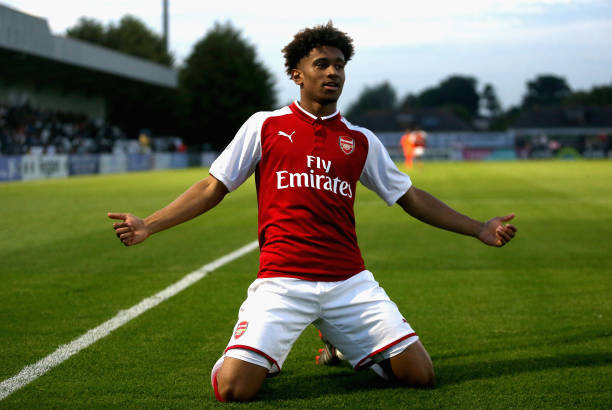
What’s more, Per’s sending the message that he wants a hard-working player who perhaps only has a smidgen of talent compared to an immensely gifted person who doesn’t put in any effort in training sessions or for the rest of the team.
It’s a fantastic attitude for a young player to have and as a man who deeply loves Arsenal and supported them as a boy, Per obviously wants everyone to be giving their all, 100% of the time.
Another part of Per’s philosophy when it comes to young players is how they’re treated.
At the moment, the skipper believes clubs are failing to provide the support these young people need at such a crucial time in their lives, not just professionally but personally.
When Per was a youngster, before he broke into Hannover 96’s first team, he had to work a year either in the army or for the community. The German picked working in a mental instituted as part of his community work and learned a great deal about compassion and being humble while there.
“When I went in I thought: ‘They need me.’ You can’t turn up and think: ‘I don’t care.’ It was something to put things in perspective,” he told the Guardian in August. “That privileged life we live is good but you have to respect what happens on the other side as well. When you have a high sometimes, just look back and think about that.”
This compassion has carried over into his work for Arsenal in the Community – the big guy visited a mental health football programme back in September – and it’s also effected how he would coach young players.
Bridging the gap
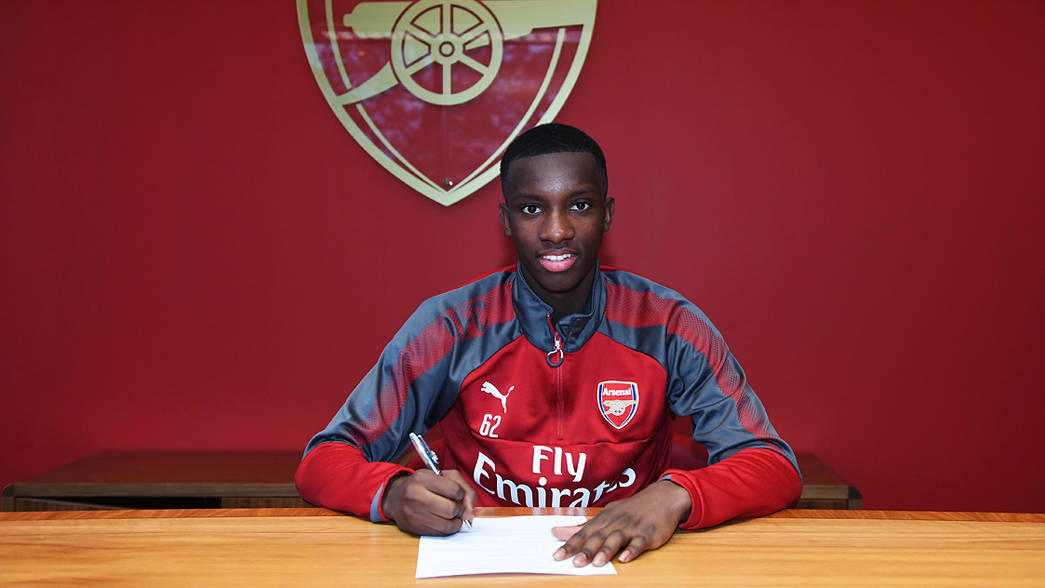
The defender has spoken about wanting to bridge the gap between the Arsenal first team and the youth side. Young players such as Joe Willock, Reiss Nelson and Ainsley Maitland-Niles went with the Gunners on their pre-season tour and continue to train alongside them now as they’re getting played in League Cup and Europa League matches.
Per reckons that, unfortunately, there’s often a lack of communication there and he wants the younger players to feel comfortable enough to communicate with the older stars. When he was a youngster, he remembers not being allowed to converse with the older players – players he could learn something from – and as a result that must have created a tense atmosphere.
“Sometimes you have to understand the young generation in terms of what they do, what they feel, and you have to do it as well to keep up,” he said in August. “So this is a guy that keeps up on and off the pitch and is not always having a go at you, he’s mixing it up. I think nowadays you have to be like that.
“When I came through the environment was very different. I couldn’t look at the players who were over 30. They would say: ‘Why are you looking at me? What do you want from me?’ Even on the training pitch you would get tackled sometimes in a very bad way. It was proper rivalry: ‘Young centre-back, you watch out. I’m gonna show you on the pitch and I’m gonna show you off the pitch.’
“Those days have almost gone, it’s more welcome. But I want to keep up that dressing room where everyone is respected. Primarily you want to perform. Youngsters have to know when they have to perform and when they have to be serious – that’s something I stand up for. But sometimes you need to be not only the guy who talks and demands; you have to have that fun part in your life as well.”
Not only would I imagine this makes a positive environment for everyone but it probably makes it easier to learn.
For example, 17-year-old Nelson is far more likely to go up to 29-year-old Mesut Ozil and ask for some advice if he’s already opened up a line of discourse with the German. Feeling comfortable and open in their surroundings is obviously important to Per.
“It’s good for me to see these youngsters on a daily basis,” the centre-back said in September.
“They went with us on tour and now they’ll keep training with us, which is really important.
“It’s not only one or two weeks where you show up and show your skills, or in one or two games. It’s the consistency and it’s really important that they understand when there is doubt or they feel there is a gap between youth and first team, they need to express themselves by coming to the first team and communicating.
“They’re welcomed. If there’s anything I can help with, they need to understand that they can talk – there is no need to hide. They need to feel welcome because they’ve done a lot for us, they’ve contributed.
“To do that on a consistent level, because they’re not in the first-team dressing room at the moment, it creates a little bit of a gap. That can mean they don’t know where they are. Are they Under-23s, Under-19s or first team? It’s important that we keep in touch and communicate well.
“They’ve got huge potential and have high levels of skill, but it’s what you make of it. That’s something I’m going to address in the next couple of years. I respect them highly but the only ones who will make it are the ones who make the most of their potential.”
Here, Per gives a direct insight into how he’s going to run the Arsenal academy. He references work ethic and how skill levels mean very little unless you’re giving it your all.
Next: How Mertesacker commands respect
R.E.S.P.E.C.T
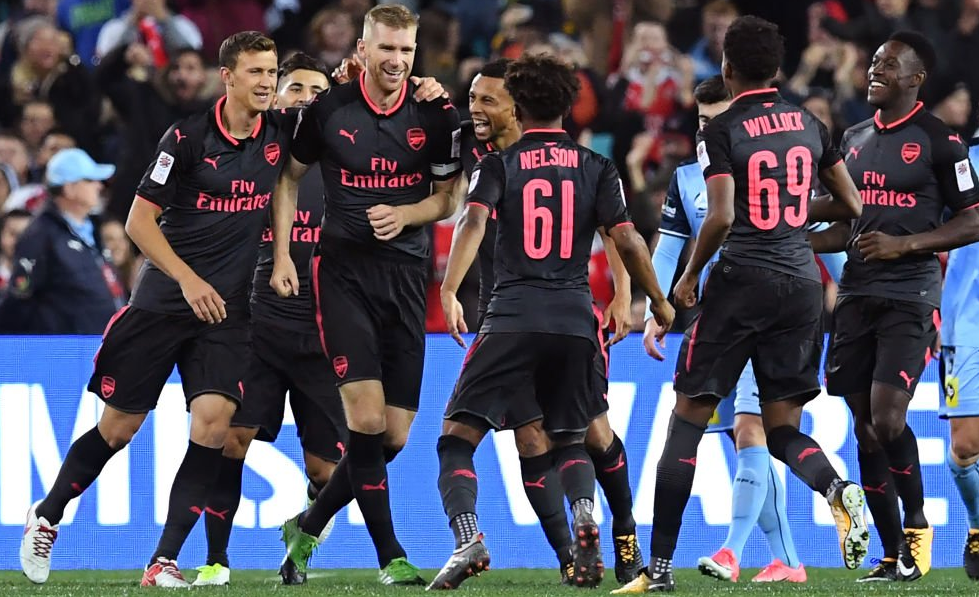
It seems as if the attitude Per has towards younger players, as well as his teammates, has been rewarded with unwavering respect and while he may not have made the best captain on the pitch, it’s obvious that he’s going to have massive potential as a leader off it.
When the defender was named as club captain, Jack Wilshere was the first to say he wasn’t surprised by the appointment, citing the German’s organisation skills and no-nonsense nature as why the choice was obvious.
Granit Xhaka and Arsene Wenger have also explained how Per is a huge leader in their team, with the boss admitted that it was actually Arsenal who approached the player over the role, rather than the other way around.
“When we raised the question, he thought about it and naturally the process integrated slowly into his brain,” Wenger said. “The decision in the end that was not obvious at all at the start for him, became very obvious.
“I’m happy because I believe that he can guide the future generations of Arsenal Football Club to successful careers.
“When you have a reputation, when you’re admired, you have two ways to behave. To take advantage of it and take privileges, or you’re conscious of the responsibility you have and you want to be a model that other people take example from.
“He chooses the right way and has always done that. There’s talent in your career and what you make of it. The respect you gain for people is more from what they make of their talent, and on that front Per has done extremely well.”
As the Frenchman points out, Per is already admired by the younger players and he reiterated the German’s emphasis on hard work rather than raw talent.
This is backed up by comments from 22-year-old Calum Chambers and 18-year-old Charlie Gilmour.
“The one player who has helped me a lot would be Per,” gushed Chambers. “Being in the same position, he was almost like my mentor for a couple of years. I have never seen a player so professional and dedicated.
“Every little thing he could do he did. There were times when he would be looking at me and saying ‘you could do this’ and that’s rubbed off.
“That’s helped me realise the little things you do, the tiny little one or two per cents, get you where you want to be.”
While Gilmour said something similar.
“The manager Arsene Wenger only told me (that Per would be taking over as head of the academy) the day before that I was travelling,” Gilmour said. “I was very surprised but felt ready for it.
“I got plenty of advice from the first-team players.
“Per Mertesacker is a big help to me — he always talks to me and gives me advice and helps me.”
So, how will this strong work ethic, combined with compassion and genuine concern for young players filter through to Per’s role with the academy?
At the moment, there appears to be, as the player as said himself, a gap between the first team and youngsters, even when they train together. I’d imagine that the players who are yet to even make a League Cup appearance are already wondering whether they ever will and perhaps often feel as if they’re living in the shadow of the Big Boys, with no real direction and no way of growing.
Per will help bridge that gap. He’s been a Gooner since childhood, so he understands the values of the club far greater than most, and he’s played there since 2010. He’s chosen to retire there and stay. That kind of love and respect for the shirt is exactly what young players coming through the ranks need to see.
They don’t need some random coach coming in from another team telling them how to play the Arsenal Way. They need someone who’s lived it.
Per will teach them the difference between players who work hard and those who don’t. And, by the sounds of it, he won’t have any trouble telling the ones who are slacking that they’re not pulling their weight.
However, on the flip side, he cares for their well-being and will teach them that talent doesn’t mean much if you can really apply yourself. He’ll make them believe that, with work, they can make it.
With this in mind, as Wenger says, Per taking over the academy seems like a logical move.
More importantly, it seems like the right one.
